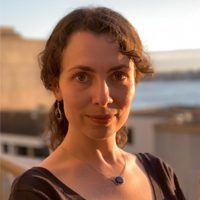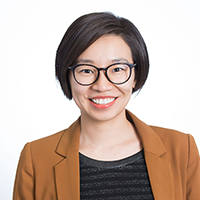Two Daffodil Centre researchers have been awarded fellowships in the latest round of funding announced by Cancer Institute NSW, valued at more than $1 million over the next 3 years.
Harnessing advances in genomics to improve early detection of prostate cancer
Associate Professor Julia Steinberg has been awarded a Career Development Fellowship through which she hopes to harness the latest genomics advances to inc rease early detection of prostate cancers and improve health outcomes for Australian men.
rease early detection of prostate cancers and improve health outcomes for Australian men.
“I am incredibly excited about the Fellowship and the opportunity to do this much-needed research.
“In particular, the Fellowship will include transdisciplinary research on three connected components: improving prostate cancer risk predictions; identifying potential risk-tailored early detection strategies for which the benefits (lives saved) will be maximised in relation to the harms (over-diagnosis); and improving understanding of the preferences of Australian men so that any proposed strategies can be better designed to address community needs.
“To ensure the practical relevance of this research and any recommendations, the Fellowship will also incorporate perspectives from key stakeholders including consumers, healthcare professionals, and policy experts,” explained A/Prof. Steinberg.
Enhancing screening and early detection of breast cancer
Dr Tong Li was awarded an Early Career Fellowship to investigate the effectiveness of an emerging technology called Digital Breast Tomosynthesis (or 3D mammography) from breast cancer detection to long-term outlook. This new type of digital x-ray mammogram creates 3D-like images of the breasts. Dr Li will establish the world’s largest dataset of women screened with a family history of breast cancer using tomosynthesis compared with standard 2D mammography.
technology called Digital Breast Tomosynthesis (or 3D mammography) from breast cancer detection to long-term outlook. This new type of digital x-ray mammogram creates 3D-like images of the breasts. Dr Li will establish the world’s largest dataset of women screened with a family history of breast cancer using tomosynthesis compared with standard 2D mammography.
“My research will answer important real-world questions about the accuracy and utility of tomosynthesis in population screening for women with a family history of breast cancer. It will also inform screening policy decisions on using tomosynthesis in this group of women at increased risk,” explained Dr Li.
Dr Li said her career aspiration is to become a world-leading breast cancer researcher, with dedicated screening and imaging expertise, ensuring optimisation of population screening and early diagnosis of breast cancer through high-quality evidence.
“This Fellowship will ensure I reach my career goals and launch my independent and highly productive research working in the cancer field to enhance screening and early detection of breast cancers in Australia and globally.”



